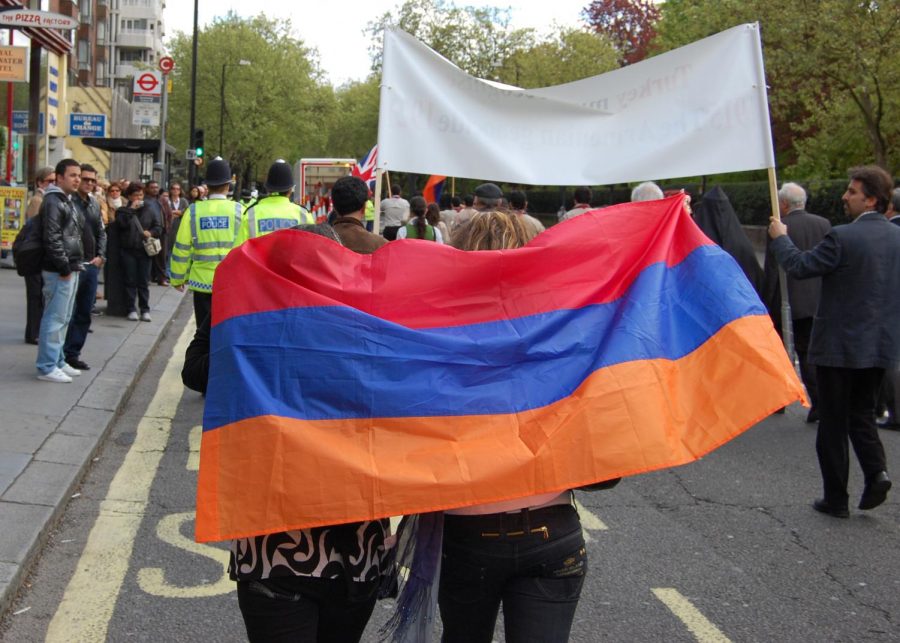Biden recognizes the Ottoman massacre of Armenians as a Genocide
President places himself on the right side of history
Two women holding an Armenian flag while participating in a commemorative march.
President Joe Biden acknowledged the Armenian Genocide in a statement on Armenian Remembrence Day in an honorable yet controversial statement.
That day, April 24, I and many Armenians expected silence from the U.S. government. It would not have been the first time a candidate for president had promised during the campaign to seek justice for the Armenian Genocide yet stayed silent once in office. It was a surprise when President Biden called the Ottomans’ 1915 massacre of Armenians a genocide, unlike any other president for the past 40 years.
Such a decision is likely to have a negative impact on diplomatic relations between the U.S. and Turkey, the reason previous presidents invoked when retracting their campaign promise to acknowledge the human-rights violation. It seems as though Biden knows that, and although he is treading carefully, he seemed not overly concerned with maintaining a great relationship with Turkey. Turkey, the successor state of the Ottoman Empire, not only pretends the genocide didn’t happen, but claims the lives lost were actually a result of a random and undocumented war that took both Turkish and Armenian lives. The Turkish government has made threats if its version isn’t upheld.
I, like many Armenians, grew up with a deep understanding of this tragedy, and how it resulted in intergenerational trauma, diaspora and an overall sense of mourning for what our culture could have been. My ancestors migrated to Iran, and, over the years, Persian culture became as influential as Armenian culture in my family, a consequence of the diaspora, which forced Armenians to flee to regions outside their homeland.
Approximately 1.5 million Armenian lives were lost during the Genocide, which included the rape, torture and desecration of innocent men, women and children. In my upbringing, my brother and I were continually instructed to marry another Armenian to continue our bloodline, which has made sense to me only in the past few years. This mass extermination fragmented our ability to form roots in our own country, and its goal, as with every genocide, was to eradicate a people. Armenians consider it a top priority to further our ethnicity because our identity is under threat with every new geographical conflict that emerges in Armenia.
In all honesty, the acknowledgement of the Genocide is a small, long-overdue first step. Biden has not promised any sweeping United Nations resolutions against Turkey or held it accountable for its human-rights violations and censorship of the truth. Biden hasn’t promised to rebuild Armenia, or protect its landmarks from attacks from neighboring countries. He has not called for reparations.
Most importantly, nobody can bring our dead back and undo the permanent damage to our culture.
However, Armenians have been chanting about the Genocide every April for more than a century, and for somebody in power to formally acknowledge reality is a powerful first step. Armenians have not forgotten the Genocide, and Armenians 100 years into the future won’t forget because trauma builds deep bonds. We still exist, and despite the fact Armenians are spread across the United States and the Middle East, and that means which creates variations in our language, food, and cultural identities, we are still able to form thriving communities, like in Glendale. We are able to come together to remember this tragedy, because, despite the Genocide, Armenians still exist.
Click here to view Biden’s statement.
Manifa Baghomian can be reached at [email protected]


